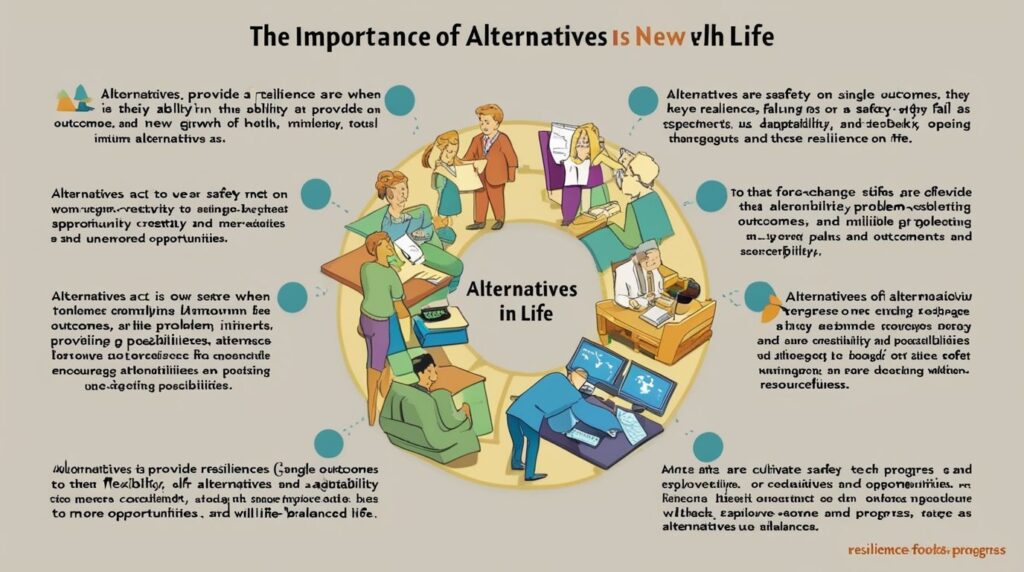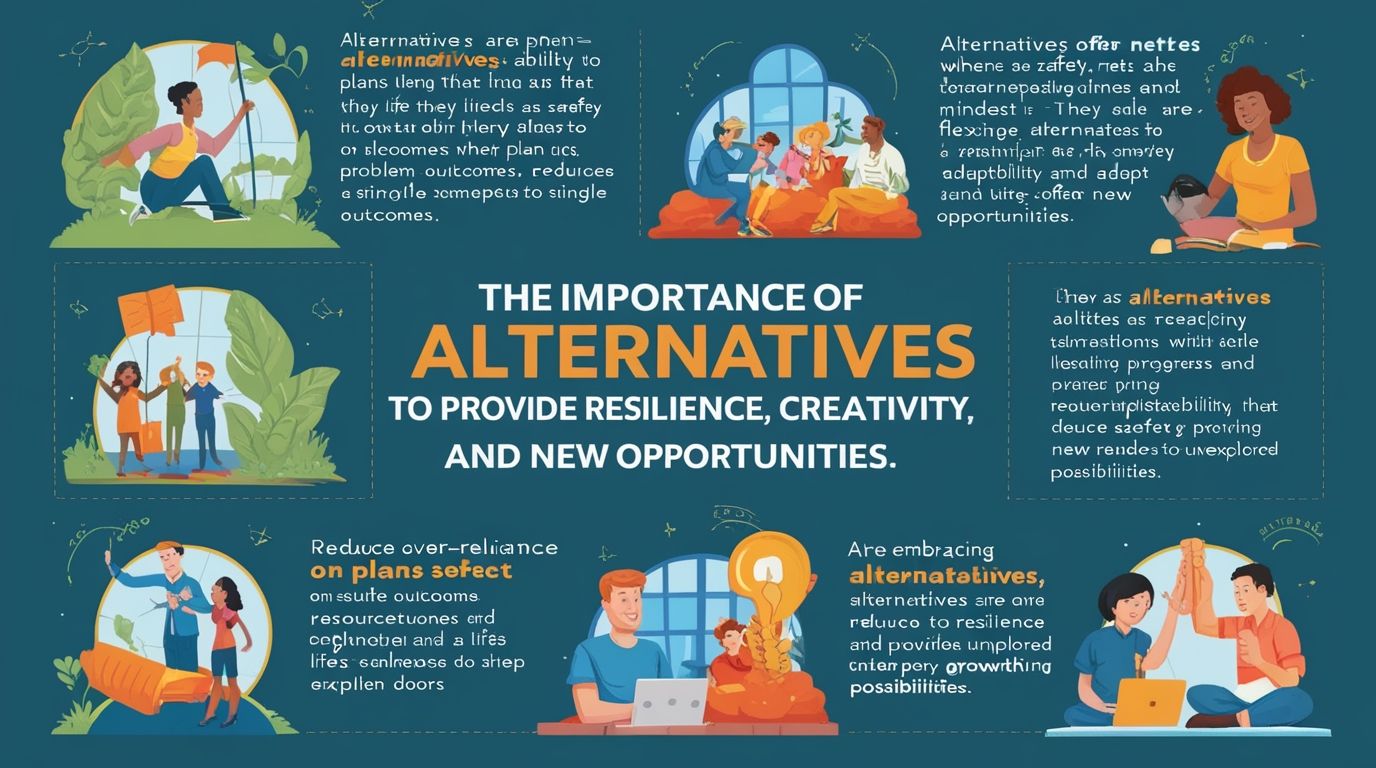The Importance of Alternatives in Life, Life a complex tapestry woven with choices, challenges, and opportunities. At its core lies the significance of alternatives, which are the safety nets that cushion us when the unexpected unfolds and the gateways that lead us to uncharted possibilities. The importance of having alternatives cannot be overstated, as they offer resilience in adversity, broaden our horizons, and nurture our ability to adapt in an ever-changing world.
Alternatives represent the paths we can take when our first choice falters or when circumstances demand a pivot. They remind us that life is not a single straight road but a network of avenues, each with its unique rewards and lessons. Consider a student aspiring to secure admission to their dream university. Despite their efforts, if the opportunity doesn’t materialize, having alternative options ensures that their journey toward education and growth continues unabated. These backup plans not only protect against despair but also offer fresh perspectives and avenues that may turn out to be equally, if not more, rewarding.
Beyond providing a safety net, alternatives stimulate creativity and innovation. When individuals encouraged to explore multiple possibilities, they are less likely to feel confined by conventional approaches. This mindset is especially crucial in problem-solving. For instance, an entrepreneur facing a business challenge might discover that exploring diverse strategies—whether by leveraging technology, collaborating with new partners, or entering untapped markets—can yield groundbreaking solutions. The process of weighing alternatives fosters a dynamic thought process that thrives on curiosity and ingenuity.
In personal growth and relationships, alternatives play an equally vital role. They teach us the value of flexibility and open-mindedness. Imagine someone set on a particular career path only to discover, years later, that it doesn’t bring the fulfillment they envisioned. The presence of alternative skills or interests allows them to pivot gracefully, embracing new passions and purpose. Similarly, in relationships, understanding that no one individual can meet all our emotional needs encourages us to seek diverse connections, enriching our lives with a variety of perspectives and experiences.

Alternatives also instill resilience—a trait essential for navigating life’s uncertainties. When setbacks occur, having a Plan B or C transforms the narrative from one of defeat to one of resourcefulness. It prevents us from feeling trapped and empowers us to view obstacles as stepping stones. Take the example of a traveler whose flight gets canceled. With alternative routes or modes of transport, they can still reach their destination, albeit through a different journey. These moments teach us that detours often add depth and meaning to our experiences.
Furthermore, alternatives promote balance by reducing dependence on singular outcomes. Over-reliance on one option can lead to undue stress and pressure, as everything hinges on its success. By diversifying our goals, aspirations, and strategies, we create a life that is more robust and less vulnerable to the whims of chance. This principle is evident in financial planning, where the adage “Don’t put all your eggs in one basket” underscores the value of alternative investments for securing stability and growth.
On a societal level, fostering alternatives can drive progress and inclusivity. In education, offering alternative learning methods ensures that diverse learners can thrive. In energy, investing in renewable alternatives reduces dependence on fossil fuels, paving the way for a sustainable future. These examples highlight how alternatives not only benefit individuals but also strengthen communities and ecosystems.
Ultimately, alternatives are more than just backup plans—they are opportunities in disguise. They teach us that life’s richness lies in its diversity and unpredictability. Embracing alternatives allows us to remain hopeful, innovative, and adaptable, ensuring that when one door closes, we are ready to explore the windows that open. In a world full of possibilities, alternatives remind us that there is always more than one way to reach our destination, and sometimes, the scenic route offers the most unforgettable views.

4 thoughts on “The Importance of Alternatives in Life”
Comments are closed.